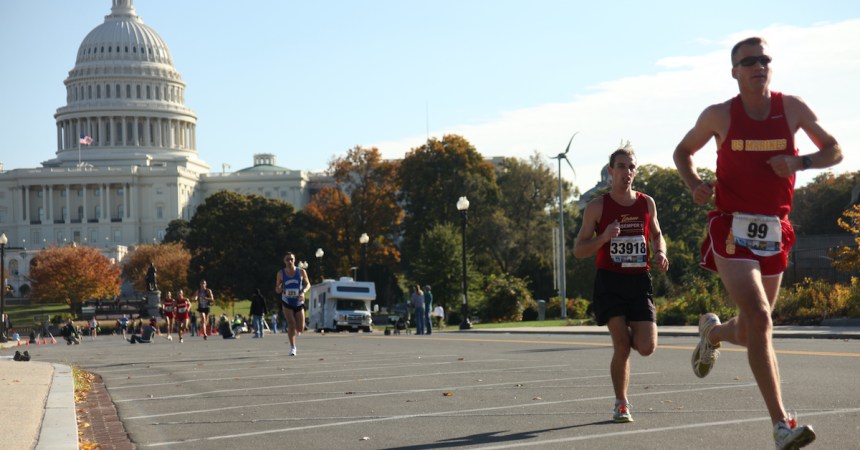During the invasion of Iwo Jima and the assault on Mount Suribachi, a Marine Corps Reserve infantryman and paratrooper carried his weapon — an ANM2 aircraft machine gun capable of firing 1200-1500 rounds per minute — onto the beaches and used it to devastate Japanese pillboxes even though it was shot from his hands…twice.

Marine Cpl. Tony Stein’s family later received the Medal of Honor for his actions on the island.
Stein was a Golden Gloves boxer and machinist before enlisting in the Marine Corps Reserve in September 1942. He graduated boot camp and then became one of the few Marines to attend airborne training in World War II. He served in a number of battles in the Bougainville campaign early in the war.

After the short-lived Marine Parachute Regiment was disbanded, Stein was assigned to the 5th Marine Division and sent to Iwo Jima. Marines in his unit came across a crashed SBD Dauntless dive bomber, a plane known for its slow speed but deadly armament. It’s pilots racked up an impressive 3.2-1 air-to-air kill ratio in the bomber.
The Dauntless’s lethal bite came from its ANM2 aircraft machine guns, .30-caliber weapons based on the M1919 light machine gun. The aircraft version was lighter and fired approximately three times as fast as the standard M1919. A unit armorer enlisted Stein’s help in adding buttstocks, bipods, and sights to the weapon.

Each battalion in the unit was assigned one of the modified weapons, which were dubbed the “Stinger.” Stein was chosen to carry his battalion’s.
The weapons were fitted with 100-round ammo belts carried in aluminum boxes, meaning the weapon could unleash hell for about five seconds at a time.
When the Marines landed at Iwo Jima, Stein pressed forward to where the fighting was hottest and placed carefully aimed bursts into Japanese pillboxes, usually by charging them alone and firing at close ranges against the crews inside.

Of course, with only five seconds or less of fire per ammo belt, he quickly ran dry. He threw off his shoes and helmet for speed and made running trips back and forth to the beach carrying wounded Marines down to aid and bringing ammo belts back. According to his Medal of Honor citation, he made at least eight trips that day.
During the fighting, the Stinger was shot from Stein’s hands twice. But he simply picked the weapon back up each time and kept fighting.

The Marines pushed farther forward than they could hold. When the unit was ordered to withdraw, Stein covered the movement with the Stinger.
As the invasion continued, Stein was wounded on the famous Mount Suribachi and evacuated to a hospital ship. When the regiment took additional casualties, Stein slipped off of the hospital ship and joined his unit once again.
He was with his company when it was pinned down by a Japanese machine gunner on March 1. Stein led the movement to find and destroy it but was shot by a sniper in the attempt. A Medal of Honor for Stein’s actions on the beach of Iwo Jima was presented to his widow in 1946.


























